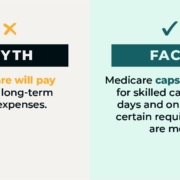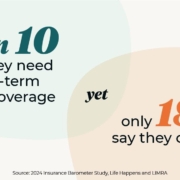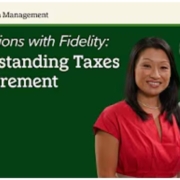How the Estate Tax Exemption Can Be a Tax Dream – Part 1

Money Matters – Skloff Financial Group Question of the Month – October 1, 2024
By Aaron Skloff, AIF, CFA, MBA
Q: We read ‘How a Gift Can Be a Tax Dream or a Tax Nightmare’ Part 1 and Part 2. We also read ‘How To (Legally) Avoid Taxes When Selling Your Home’ Part 1, Part 2 and Part 3. Furthermore, we read ‘How Gifting Versus Selling Your Home Can Be a Tax Dream or a Tax Nightmare’ Part 1, Part 2 and Part 3. Then, we read ‘How a Step-Up in Basis Can Be a Tax Dream’ Part 1, Part 2 and Part 3. Lastly, we read ‘How Community Property States Versus Separate Property States Can Be a Tax Dream or a Tax Nightmare’ Part 1, Part 2 and Parrt 3 and Part 4. Can you explain estate taxes and the estate tax exemption?
The Problem – Taxes While You Live and Taxes When You Die
After a lifetime of income taxes, capital gains taxes, gift taxes and other taxes, the IRS has another tax when you die – the estate tax.
The Solution – Understanding the Estate Tax and Estate Tax Exemption
The estate tax is assessed when your estate, in excess of your exemption, is transferred at your death. It is based on your assets less your liabilities at your date of death. The assets may consist of cash and securities, real estate, insurance, trusts, annuities, business interests and other assets. The liabilities may consist of mortgages, other debts and estate administration expenses.
In 2024, the first $13.61 million of your estate for single individuals or $27.22 million for married couples is estate tax free due to the estate tax exemption – a tax dream. Larger estates are subject to a 40% top tax rate. The exemption is expected to collapse in 2026. See the table below.
Click to Enlarge
2024 Estate Tax Examples. If you are single and die with $16 million of assets and $1 million of liabilities, your estate is worth $15 million. Based on your $13.61 million estate tax exemption, your taxable estate is $1.39 million. Based on the estate tax rates on the first $1 million of your taxable estate and the next $390,000, your estate tax is $501,800. Your estate value after taxes is $14,498,200 – a tax dream. See the table below.
If you are a married couple that dies with $32 million of assets and $2 million of liabilities, your estate is worth $30 million. Based on your $27.22 million estate tax exemption, your taxable estate is $2.78 million. Based on the estate tax rates on the first $1 million of your taxable estate and the next $1.78 million, your estate tax is $1,057,800. Your estate value after taxes is $28,942,200 – a tax dream. See the table below.
Click to Enlarge
Action Steps
Work closely with your Registered Investment Adviser (RIA) to reduce your taxes, and grow and preserve your wealth.
Aaron Skloff, Accredited Investment Fiduciary (AIF), Chartered Financial Analyst (CFA), Master of Business Administration (MBA) is CEO of Skloff Financial Group, a Registered Investment Advisory firm specializing in financial planning, investment management and benefits for small to middle sized companies. He can be contacted at www.skloff.com or 908-464-3060.















